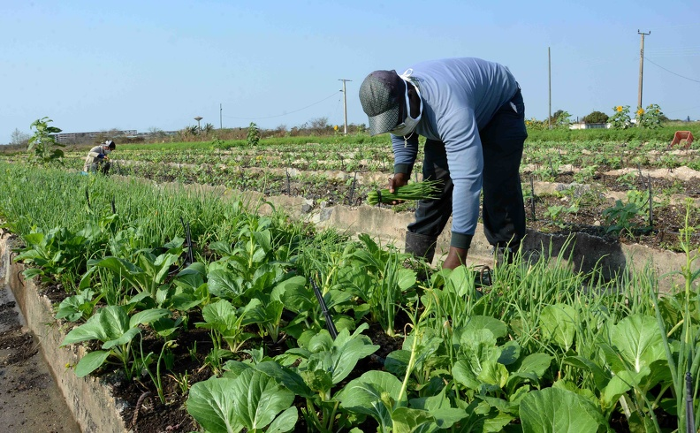![]()
It is necessary to ensure that Acopio, Frutas Selectas, the business system and the productive bases obtain the crops directly to offer them first-hand to consumers

Camagüey, Cuba, October 25th.- In the midst of fuel limitations and the impact that the rains have on the preparation of the land, Camagüey completes the cold campaign 95 percent with the planting of five thousand 11 hectares, mainly of vegetables, root vegetables and grains.
Julio Alberto Velázquez Ávila, provincial delegate of Agriculture, commented to the Cuban News Agency that the main efforts are concentrated on the cultivation of vegetables, cassava, bananas and corn, as they are foods in high demand during the celebrations for the end of the year.
He added that attention to the so-called green ring of the city is also a priority, where of the more than 100 farms that exist there, 50 have already declared themselves ready to provide their productions to the Frutas Selectas, Acopio and social consumption companies.
However, he said, current yields still do not meet the expectations of the population, which is why it is a permanent battle to better control production.
In that sense, he pointed out, it is necessary to ensure that Acopio, Frutas Selectas, the business system and the productive bases obtain the crops directly to offer them first-hand to consumers.
Given the fuel limitations that affect the estimated pace of the campaign, he said that variants have been used such as animal traction, the increase in the workforce for manual harvesting, in addition to the change in work that has allowed more people to be incorporated to the furrow.
Although the majority of the land preparation was conceived through machinery, he stated that based on the innovation of the producers, it is expected that the province will exceed 20 thousand hectares during the campaign.
To this end, he noted, we consider that the contribution of the students of the Faculty of Agricultural Sciences of the University of Camagüey Ignacio Agramonte Loynaz is vital, since their connection to the farms allows them to apply theory to practice and prepare to exercise their future profession with a more accurate perception of the resource needs faced by the sector and the strategies that are implemented to boost food production.
(ACN)